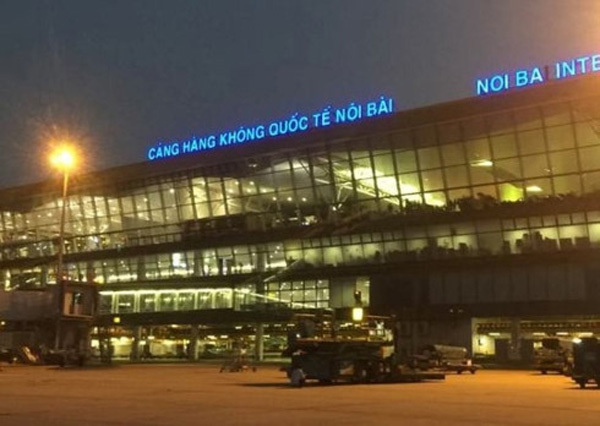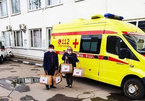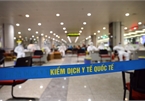 |
| Noi Bai Airport. (Illustrative image. – File photo) |
The virus has now touched all corners of Earth, and its ability to cross borders means tourism and travel are the sectors most heavily hurt by the great plague of 2020.
The countries which have fared best, like Vietnam, are those which took strong action early to limit entry to foreign arrivals. This early and decisive action, including the restrictions on international travel, tracking and tracing of cases and strict quarantining of positive patients, has seen the country top the list of those that have won the first coronavirus battle and resulted in praise from across the media spectrum.
As Vietnam, now marking 49 days free of community transmission, considers a tentative opening of its borders, what will the future of travel look like?
During the pandemic, the ease with which people were able to move internationally was quickly curtailed and, in many parts of the world, local lockdowns quickly became national.
For many abroad at the time, this meant it was nigh-on impossible to get home without paying large sums of money. Some managed the return flight, and others took the decision to weather the storm where they were.
Local immigration laws were also thrown into confusion, meaning it was unclear if those who wanted to stay could do so legally. Looking forward, this may mean that the ability to relocate to other countries has also come to an end, or at least will be a much bigger decision than it once was.
The events of 9/11, now nearing two decades ago, represented a seismic shift in geopolitics but also heralded major changes to the nature of travel, both international and domestic. The airport security screening became a major part of one’s trip, and with every successive terrorist attempt new and stricter rules on elements of travel were put in place to stop copycats; shoes, liquids and laptops, were all at some point subject to varying degrees of scrutiny. COVID-19 will be similar.
Still, for those with ‘stronger’ passports, stepping on a plane and ending up in another country was no big deal, little more hassle than getting on a bus. It was also relatively easy to relocate, with visa exemptions and extensions just a piece of paperwork, a payment or a quick trip to Bangkok away.
That was, up until 2020. As borders closed around them, expats were left in increasing uncertainty. To be able to live and work in a foreign country is a privilege, and in times of crisis, it’s only right that a nation prioritises the protection of its own citizens.
Faced with a pandemic, a country needs to make complex decisions on how best to handle the social, as well as its economic, impact. That’s not to say that foreigners should be left to fend for themselves, but such a crisis highlights the precarious nature of those who live far from their familial and governmental safety nets.
Social distancing orders led to the closure of many businesses – sometimes permanently – as well as unprecedented spikes in unemployment figures worldwide. For many working abroad, like teachers in Vietnam and across the region, prolonged shuttering of schools meant incomes quickly dwindled and they were forced to head home or find alternative sources of employment.
Vietnam has already lifted most restrictions as it successfully contains COVID-19, and Vietnamese and expats alike enter a ‘new normal’. We don’t yet know the long-term ramifications on travel, and with an interconnected world, it is unlikely we will see a return to the previous levels of travel and migration until a safe and effective vaccine is produced and made widely available. Even then, no country is immune to spikes in cases and new waves of infection.
The economic damage wrought by the virus will be immense, and already huge stimulus packages have been signed to prop up limping economies. Programmes are being put in place to stimulate and kickstart domestic tourism. What is not yet known is the long-term effects of the pandemic on travel and whether people will be willing to relocate semi-permanently abroad.
For those who have already made the move, it may be a simple choice. But others may think twice about transferring their lives overseas when the landscape can shift so quickly and uncertainly, leaving them stranded and stuck.
On the other hand, living abroad during this time has been a blessing, considering the relative success of countries in Southeast Asia in combatting the virus in contrast to governments at home in the West. Perhaps the choice of destinations will be influenced by the way in which they responded in the first few months of 2020.
In any case, the pandemic has highlighted the ease at which the state of ‘normal’ can be disrupted and the speed at which the old rules cease to apply.
Once the disease has been pushed back, we will see a return to the concept of holidays in far-flung places, but whether the intrepid will still endeavour to move their lives thousands of miles from a semblance of security is far from certain. VNS
Ollie Arci

Vietnamese community abroad support fight against COVID-19
The Vietnamese community abroad has actively collaborated with local authorities and people in both Vietnam and their host countries to fight the COVID-19 pandemic.

Expat students should carefully consider before returning home: ministry
The Ministry of Education and Training (MoET) has recommended Vietnamese students abroad consider carefully before returning to Vietnam due to the risks of spreading COVID-19 and travel restrictions imposed by many countries.
 The COVID-19 pandemic has had large-scale effects on all aspects of life. From trade flows to tourism, the spread of the disease has highlighted the vulnerabilities inherent in a globalised and interconnected world.
The COVID-19 pandemic has had large-scale effects on all aspects of life. From trade flows to tourism, the spread of the disease has highlighted the vulnerabilities inherent in a globalised and interconnected world.